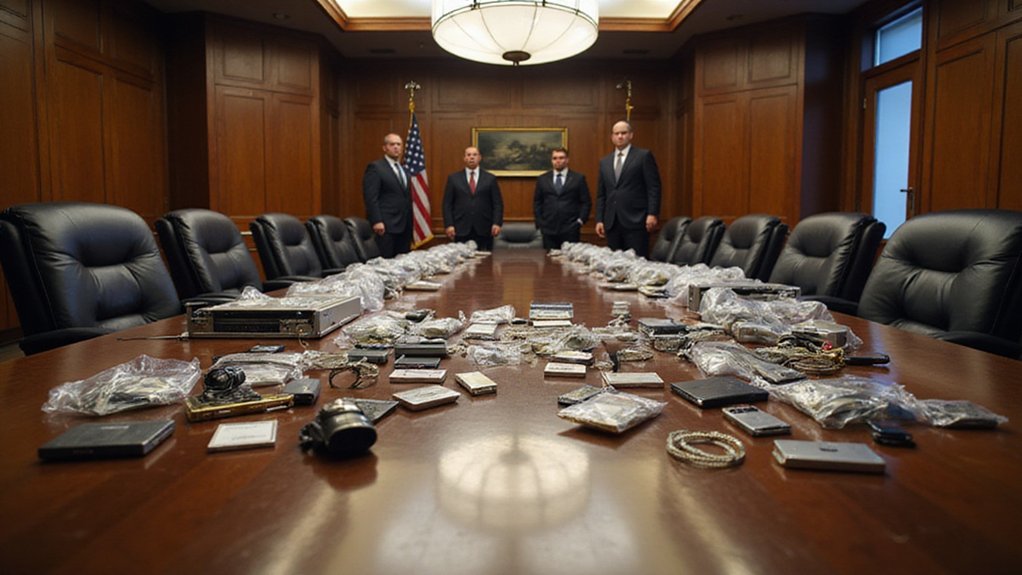The convergence of digital assets and federal law enforcement has produced an unexpected outcome: the US Secret Service now operates one of the world’s largest cryptocurrency wallets, having accumulated nearly $400 million in seized digital assets over the past decade.
This extraordinary consolidation of funds into a single cold-storage wallet represents the agency’s evolution from protecting presidents and combating counterfeiting to becoming a formidable force in crypto crime-fighting—a transformation that would have seemed implausible just years ago.
The Global Investigative Operations Center (GIOC) serves as the nerve center for these operations, employing blockchain analysis, open-source intelligence, and traditional investigative techniques to track illicit funds across digital networks.
Their methods reveal the peculiar reality of cryptocurrency’s supposed anonymity: criminals often betray themselves through VPN failures, domain registration errors, and wallet activity patterns that trained analysts can trace with remarkable precision.
The crown jewel of these seizures involves $225 million in Tether (USDT), linked to sophisticated romance-investment scams that exploit the intersection of human vulnerability and technological complexity.
These “pig butchering” operations—a term whose agricultural imagery belies their devastating financial impact—involve criminals cultivating relationships with victims over months before gradually extracting increasingly large investments into fraudulent trading platforms.
The demographic targeting reveals a troubling pattern: older investors, particularly those active on social platforms, face disproportionate exposure to these schemes.
The scams operate through fake dating profiles and professional-appearing crypto trading sites that generate artificial returns before vanishing with investor funds—a digital-age variation on time-tested confidence games. Unlike legitimate DeFi platforms that eliminate traditional intermediaries through smart contracts, these fraudulent operations rely on centralized control to manipulate victim investments.
Collaboration with major exchanges like Coinbase, Kraken, and Tether has proven essential for wallet freezing and victim identification. Kraken’s meticulous record-keeping played a crucial role in helping authorities identify nearly 500 victims through their timely provision of transaction information.
The Secret Service now conducts free week-long training sessions across more than 60 countries, spreading crypto crime awareness to jurisdictions previously oblivious to these threats.
These operations underscore cryptocurrency’s paradoxical nature: while designed to operate beyond traditional financial oversight, blockchain transparency ultimately enables sophisticated tracking that would be impossible in conventional banking systems.
The Secret Service’s success in accumulating this massive crypto treasury demonstrates that decentralized doesn’t necessarily mean undetectable—a lesson that criminal networks are learning at considerable expense. Officials emphasize that the ultimate goal involves returning funds to victims who have suffered devastating financial losses from these sophisticated fraud schemes.






